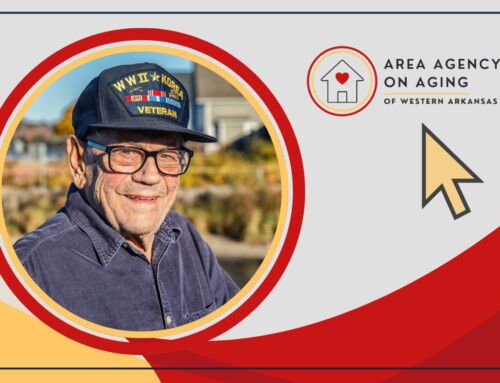Community senior centers offer more than just a place to spend time. They provide activities, social connections, and essential services that keep older adults engaged and active. From health programs to transportation services, these centers support seniors in maintaining their independence and well-being. Exploring what they offer can help you determine if a senior center is the right choice for your aging loved one.
Key Takeaways:
- Community senior centers offer social opportunities, activities, and essential support services.
- Social engagement reduces loneliness through group activities, clubs, and classes.
- Health programs include fitness classes and wellness screenings.
- Over 11,000 Senior Centers in the U.S. serve one million seniors daily.
- Activities available: exercise, arts and crafts, educational classes, and games.
- Nutrition support includes hot meals, dietitian services, and home-delivered meals.
- Social connections grow through group events, intergenerational activities, and peer counseling.
- Volunteer and learning opportunities encourage seniors to stay active through classes and community service.
- Choosing a senior center depends on services, costs, and accessibility. Visiting in person helps with the decision.

Understanding the Benefits of Community Senior Centers
Community senior centers provide a welcoming space for older adults, offering social events, engaging activities, and essential services. These centers do more than just fill the day—they help older adults stay active, build friendships, and enjoy new experiences. As vital hubs within local senior services, they offer support that enhances daily life.
One of the greatest benefits of community senior centers is the opportunity for social engagement. Loneliness can take a toll on both mental and physical health, but these centers create ways to connect with others. Whether you’re joining a club, attending a class, or participating in group activities, you can boost your mood and overall well-being.
In addition to social opportunities, community senior centers also promote health and wellness. Many offer fitness programs like yoga, dance, and strength training, helping seniors stay physically active. Some even provide health screenings and nutrition advice, making it easier to maintain a healthy lifestyle.
With more than 11,000 Senior Centers Across the U.S. serving over one million older adults daily, these spaces play a crucial role in enhancing quality of life. Research shows that regular participation can lead to feeling healthier, happier, and more connected. A community senior center isn’t just a place to gather—it’s a place to thrive.
Activities and Programs Senior Centers Offer
Community senior centers offer a wide range of activities designed to promote both mental and physical well-being. Staying active is essential as you age, and these centers make it easy with wellness and fitness programs tailored for older adults. Whether you prefer gentle yoga or chair aerobics, you can find safe and effective ways to improve strength, balance, and flexibility.
If you enjoy creative expression, community senior centers provide plenty of opportunities to explore the arts. You can participate in painting, knitting, or pottery classes, allowing you to express yourself while learning new skills. Many centers also offer music and dance programs, helping you stay engaged while having fun. Additionally, lifelong learning opportunities, such as guest lectures and courses on computers, history, and languages, can keep your mind sharp and curiosity alive.
Social activities are another key part of what community senior centers offer. Engaging in games like bingo and chess, joining a dance class, or becoming part of a social club can help you build friendships and stay connected. If you love hobbies, you’ll likely find a group that shares your interests, making every visit enjoyable and fulfilling. If you’re looking for activity ideas, check out 5 Fun Activities for the Elderly to Enjoy Indoors.
Since program offerings vary by location, visiting your local community senior center is the best way to see what’s available. These centers will often have a monthly schedule planned and available. National resources, such as the Administration for Community Living, can also provide additional information to help you find the right center for your needs.
Access to Healthy Meals and Nutrition Support
Community senior centers make healthy eating easier by serving daily hot, balanced meals designed with seniors’ nutritional needs in mind. These meals follow carefully planned senior center lunch menus created by dietitians, ensuring you get the right balance of lean proteins, whole grains, and vegetables.
Beyond meals, community senior centers also provide valuable nutrition education. You can join programs that teach portion control, how to read food labels, and how to make better meal choices. Some centers even invite dietitians to give talks on managing conditions like diabetes or high blood pressure through proper nutrition, giving you practical tips to improve your overall health.
If you or a loved one are unable to leave home, many community senior centers offer meal delivery services. Volunteers or staff bring hot, nutritious meals straight to homebound seniors, ensuring they receive proper nourishment without the need for grocery shopping or cooking. Some programs also provide grocery delivery or access to food pantries, making it even easier to maintain a well-balanced diet.
Eating well is essential for maintaining strength and energy, but planning nutritious meals can sometimes feel overwhelming. Community senior center meal programs offer a simple and accessible way to enjoy healthy eating without the hassle. If nutrition planning seems overwhelming, explore This Guide on Senior Nutrition and Meal Planning for helpful tips.
Senior Centers Promote Social Engagement and Companionship
Community senior centers provide welcoming spaces where you can connect with others and build meaningful friendships. Many centers offer clubs and groups where you can gather with others who share your interests, whether it's reading, crafting, or playing board games. If you're interested in dancing or gardening, you'll likely find groups focused on these activities as well, making it easy to meet like-minded individuals.
In addition to these activities, community senior centers often host intergenerational programs that help bridge connections between you and younger generations. Some centers collaborate with local schools, allowing students to visit and learn from older adults. Through activities like storytelling, tutoring, or teaching technology skills, these programs create valuable, meaningful interactions that benefit everyone involved.
If you're in need of emotional support, community senior centers offer peer counseling and support groups tailored to seniors. Whether you're dealing with grief, illness, or life transitions, these centers provide a safe space where you can connect with others facing similar challenges. Trained peer counselors offer guidance and a compassionate ear, ensuring you feel supported and encouraged as you navigate life’s ups and downs.
Volunteer and Lifelong Learning Opportunities for Seniors
Community senior centers offer many opportunities for you to stay engaged and contribute to your community. Volunteering can be a fulfilling way to give back, and these centers often provide roles such as tutoring, helping at food pantries, or assisting at animal shelters. Additionally, hospitals, libraries, and museums frequently seek volunteers to support their programs. These volunteer opportunities offer you a chance to socialize, find purpose, and share your knowledge with others.
Staying mentally active is equally important, and community senior centers provide ongoing educational opportunities to help you do just that. Many centers offer free classes in areas such as history, art, and languages, giving you the chance to explore new subjects. If you're interested in technology, some centers even offer workshops on smartphone use and internet safety. Additionally, libraries and cultural organizations often host lectures and discussion groups that allow you to stay engaged with current topics and meet like-minded individuals.
If you're interested in developing new career skills or pursuing personal growth, community senior centers support lifelong learning for older adults with courses in business, finance, and writing. Many community colleges offer reduced or free enrollment for older adults, allowing you to expand your knowledge without financial worry. Whether you’re learning for personal enjoyment or career advancement, these opportunities keep life exciting and meaningful.
Choosing the Right Senior Center in Your Community
Selecting the right community senior center begins with identifying what’s most important to you. Are you looking for social activities, fitness programs, or meal services? Different centers offer different resources, so outlining your priorities will make the search much easier.
Start by researching senior-friendly community centers nearby, as city websites often list available options. You can also ask friends, doctors, or local churches for recommendations, which can help narrow down your choices. Once you've found a few options, visiting potential centers in person gives you a better sense of their atmosphere and what they have to offer.
Next, compare the activity schedules to see if they align with your interests. Some community senior centers focus primarily on exercise and wellness programs, while others may emphasize arts and social gatherings. Elderly Assistance Programs such as transportation or meal support can also be deciding factors.
Cost is another important consideration. Some centers are free, while others charge membership fees or fees for specific activities. It’s a good idea to ask about pricing, insurance acceptance, and financial assistance options so that you can make a well-informed decision.
Finally, local organizations and nonprofits can also be valuable resources. City-run senior support groups often have directories of community senior centers that may help you find the perfect fit. National groups like the World Health Organization also offer information on senior services.
A well-chosen center can offer support, friendships, and engaging activities, improving quality of life and maintaining independence. These centers provide opportunities to stay active, both mentally and physically, and help you stay connected to your community. By finding the right fit, you can enjoy a sense of belonging and purpose while receiving the services and support that enhance your well-being.
Get Connected to the Right Community Senior Centers
If you're looking for the perfect community senior center for you or a loved one, contact the Area Agency on Aging of Western Arkansas today. Our team is here to help you explore options, provide personalized recommendations, and connect you with the resources that will enhance your lifestyle.


